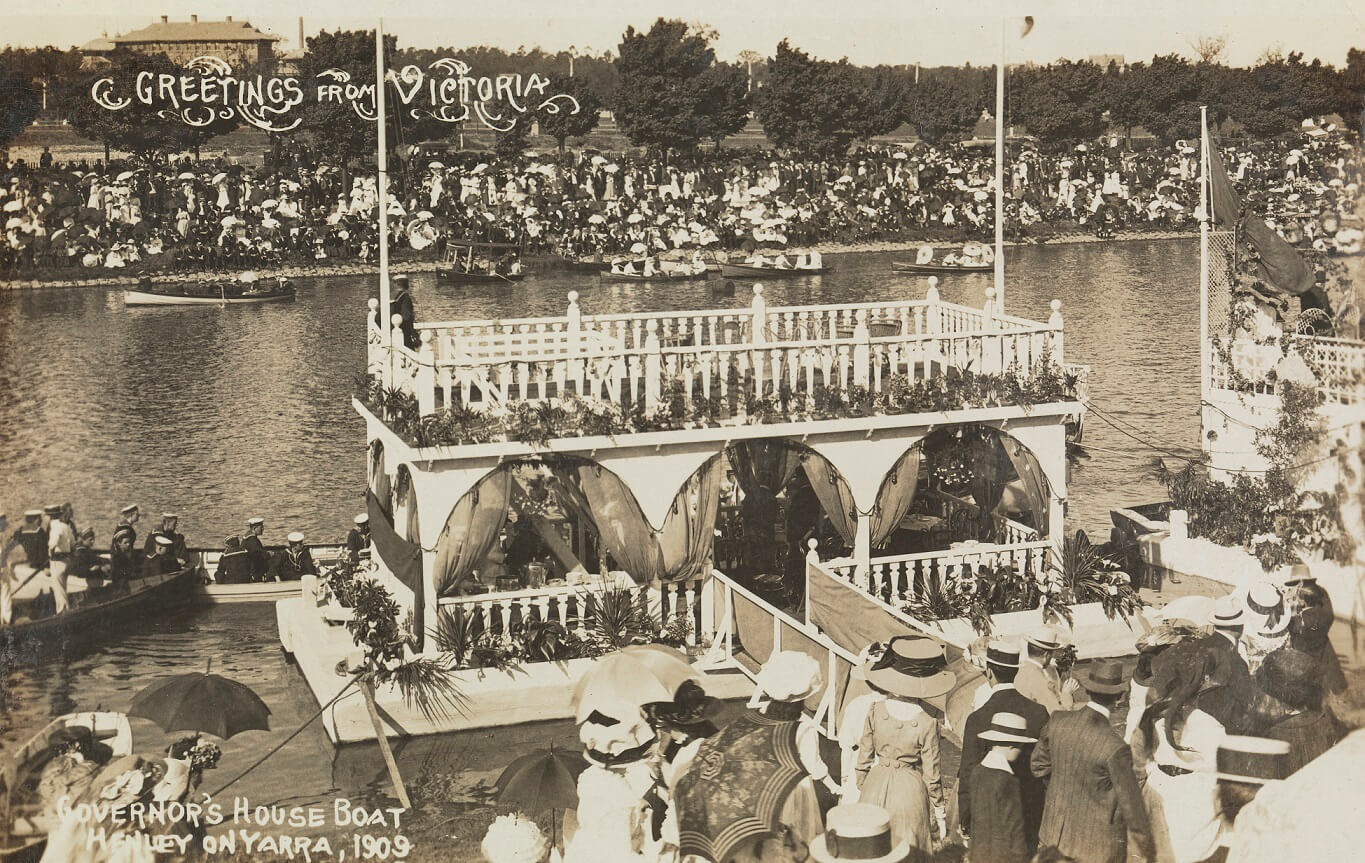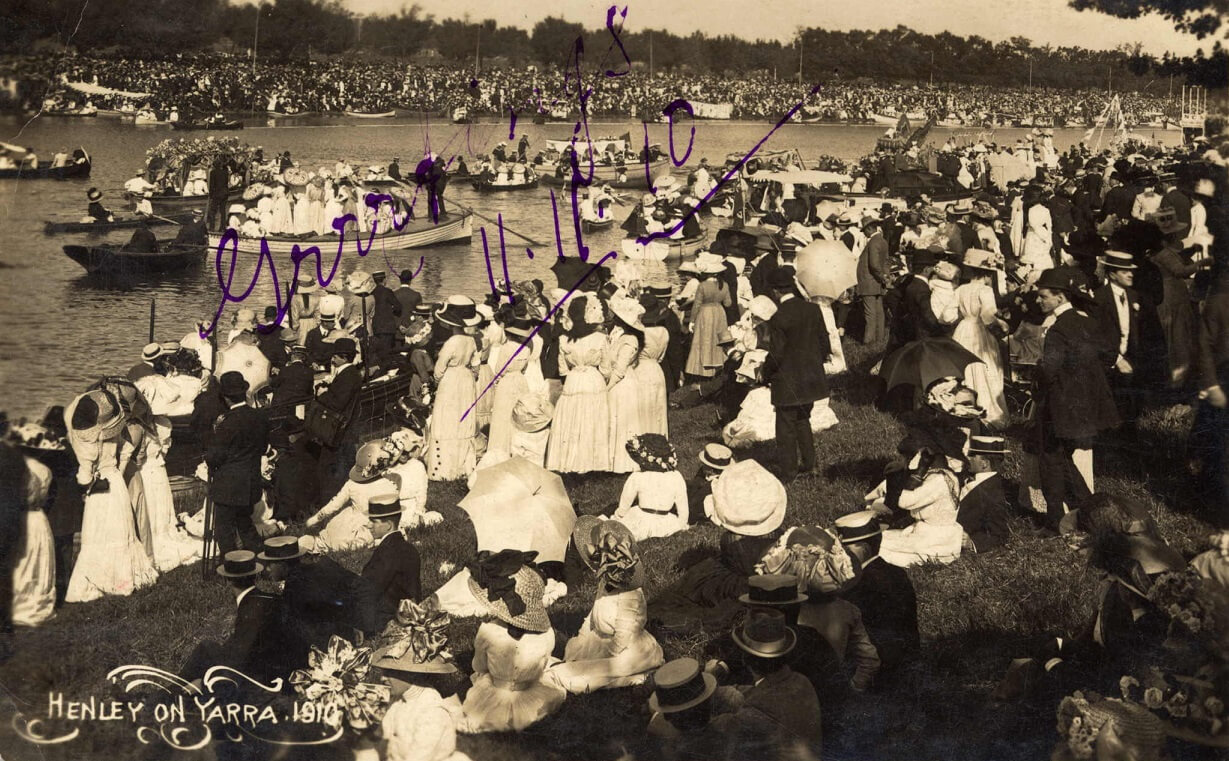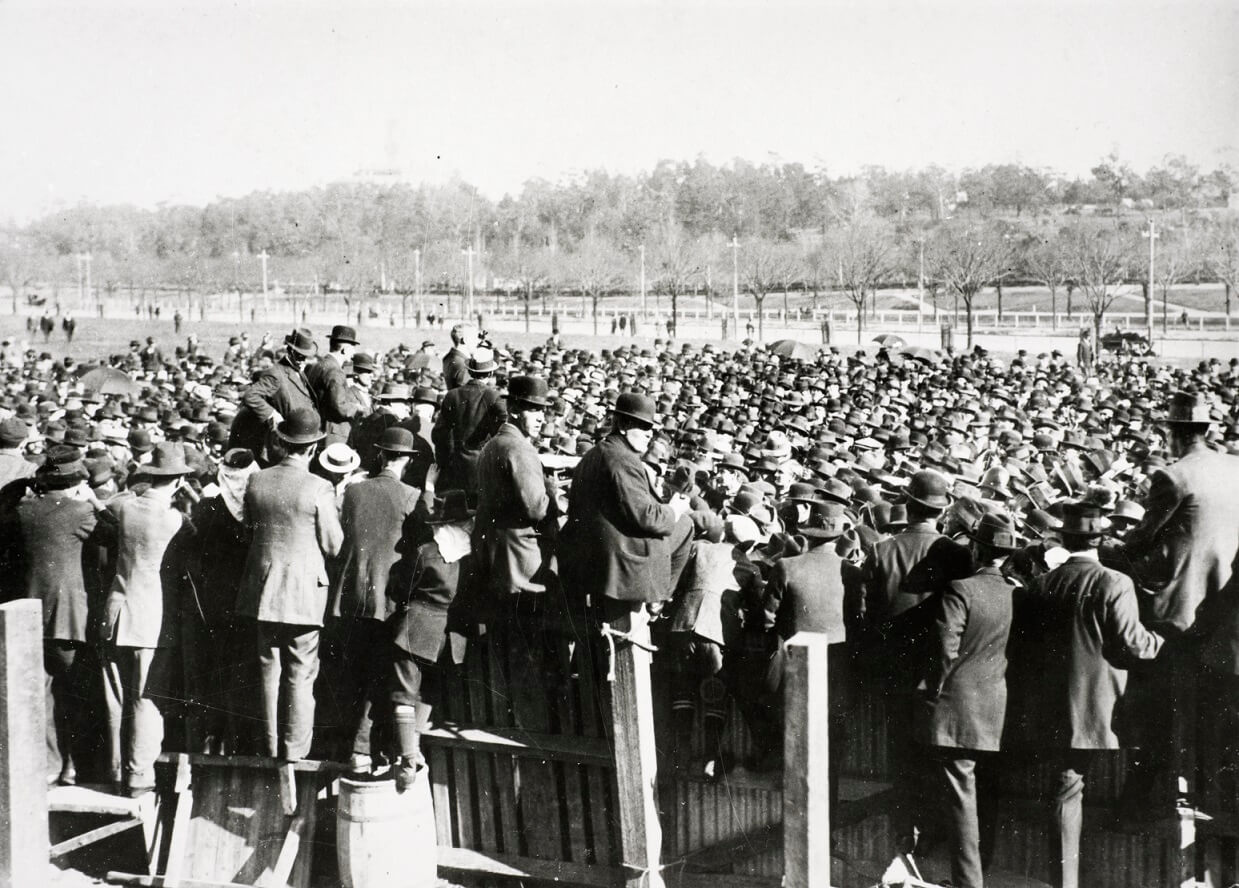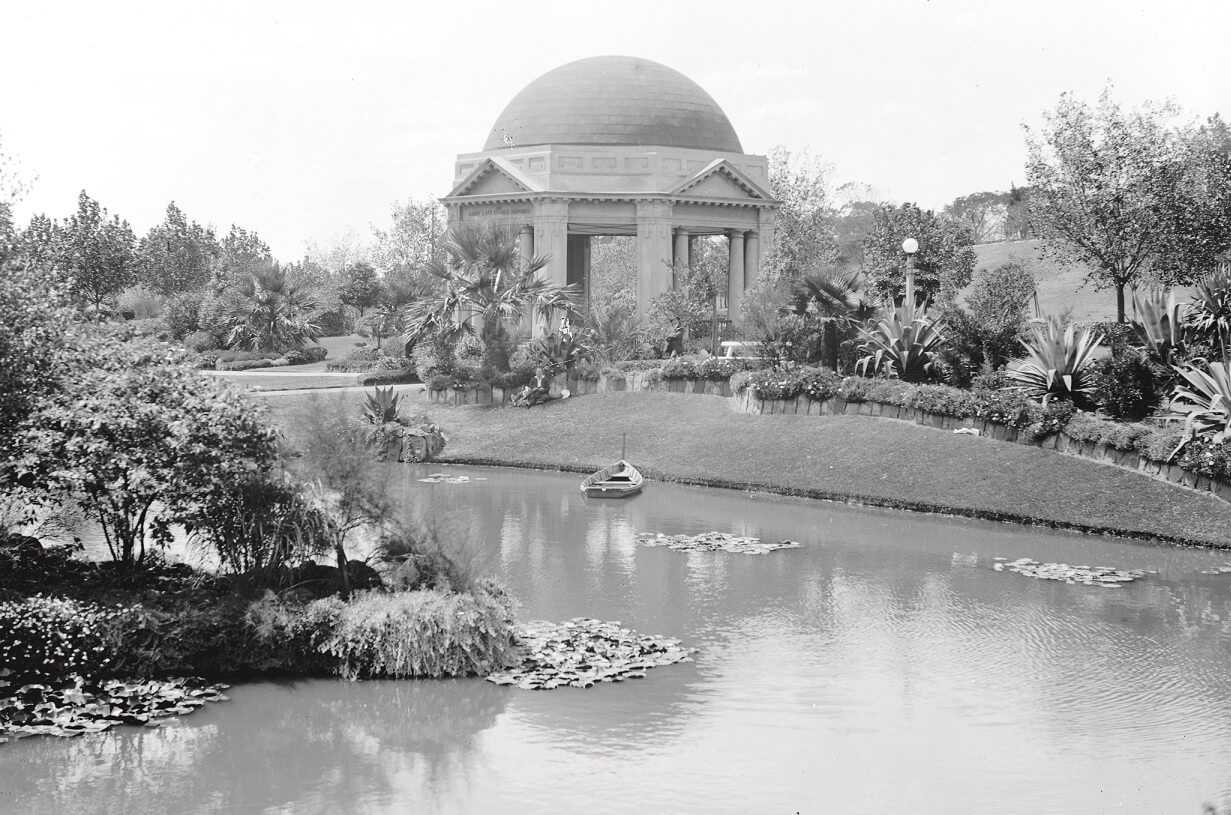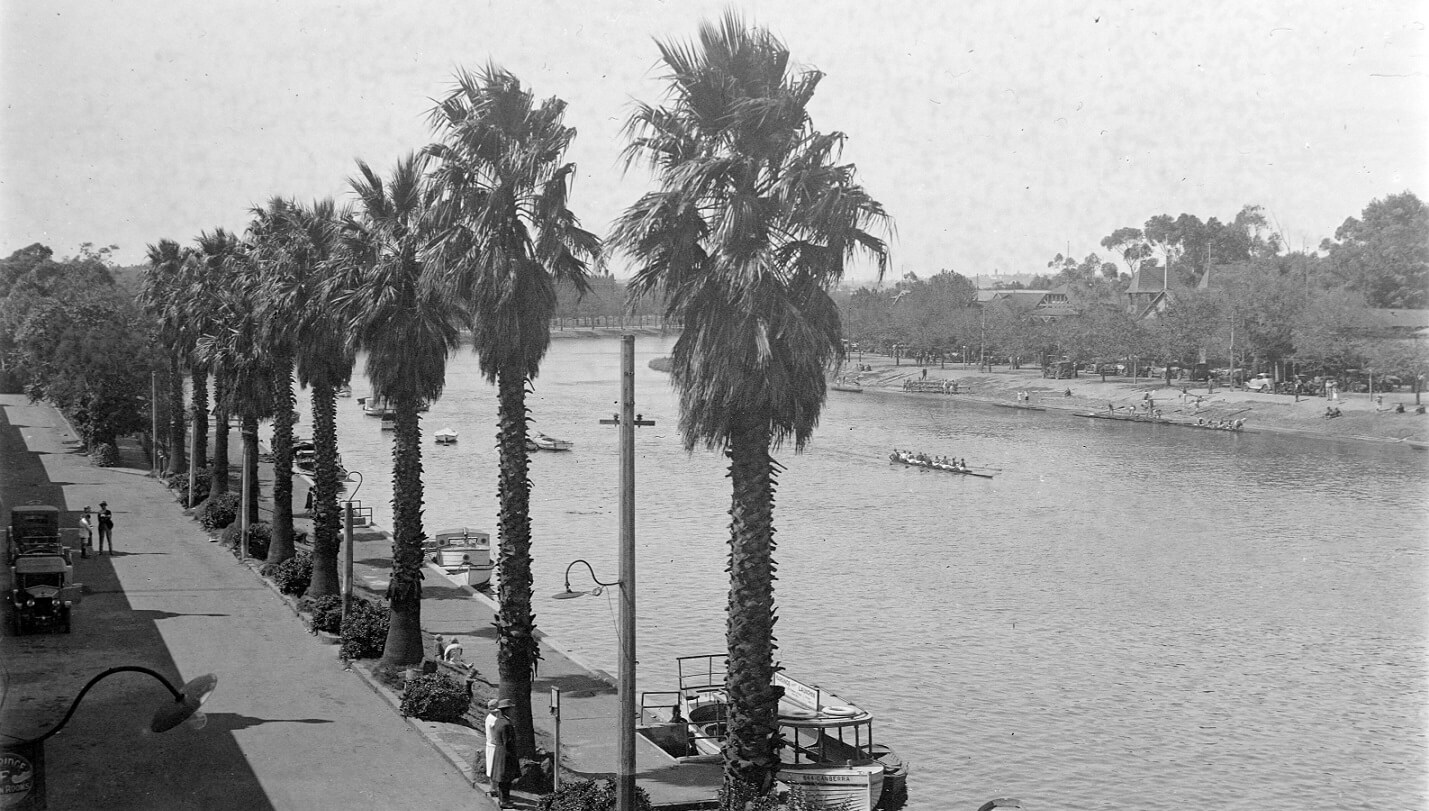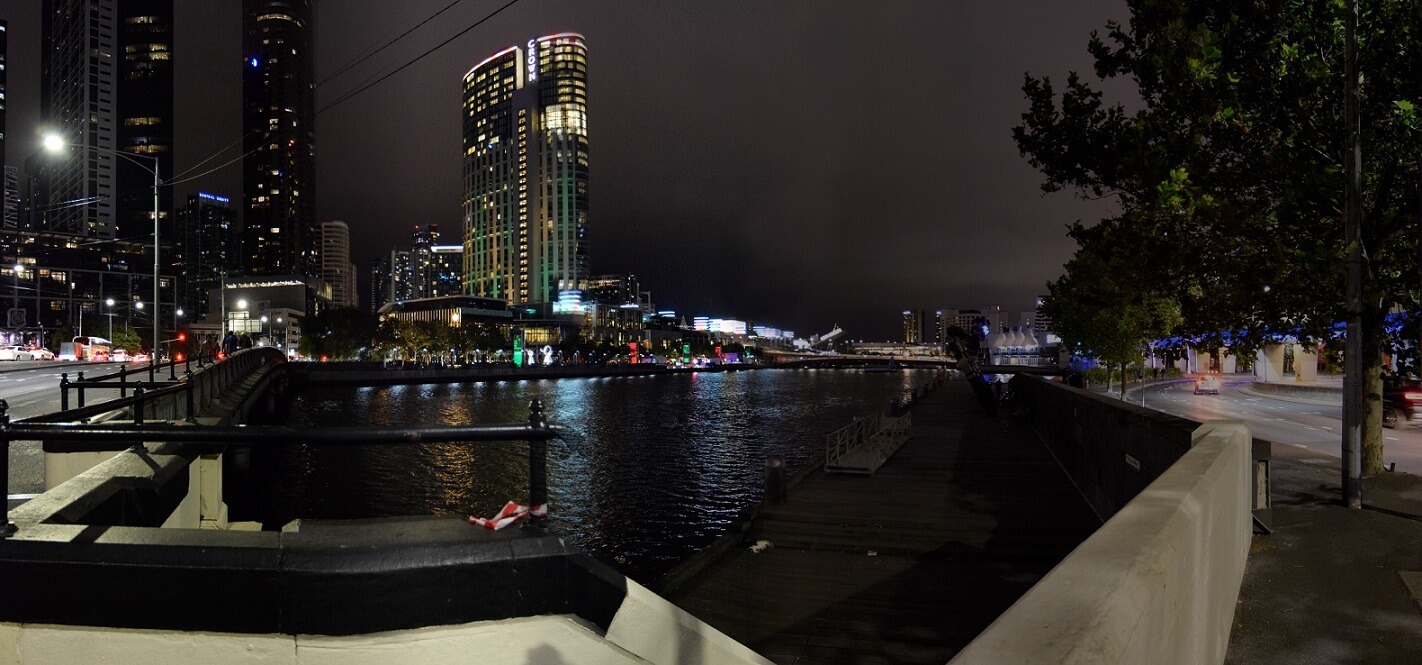By the late nineteenth century there were moves to restore the river as a site of recreation. From 1904 the popular Henley-on-Yarra regatta, held upstream from Princes Bridge, attracted large crowds.
Henley-on-Yarra
Modelled on the English ‘Henley’, this annual regatta drew crowds of up to 300,000 and was an important event on the Melbourne social calendar until the 1950s. Those with social aspirations claimed the south bank between Princes and Morel bridges, while working people preferred the north bank. Fashionable women used the occasion to display new spring dresses and hats!

Henley Regatta, Melbourne, 1906,
by R. Vere Scott, photographer
Reproduced courtesy State Library Victoria
Lining the banks were the so-called ‘houseboats’, temporary structures elaborately decorated with flowers, flags and pennants.
Governor’s Houseboat, Henley-on-Yarra, Melbourne, 1909
Reproduced courtesy National Library of Australia
Henley-on-Yarra, 1910
Reproduced courtesy National Library of Australia
Below is a video of Henley on the Yarra.
‘The Yarra Bank was my university’- John Curtin, Prime Minister of Australia, 1941-45
By the 1890s the south bank of the Yarra was the venue for Sunday-afternoon public speeches. The Victorian Socialist Party, trade unions and the Labor Party held regular public meetings. It was also the venue for anti-conscription speeches in Melbourne during the heated conscription campaigns of 1916 and 1917. Leading campaigners for Aboriginal rights and citizenship, William Cooper and (later Sir) Douglas Nicholls, addressed public meetings at Speakers Corner on the Yarra bank in the 1930s.
E.J. Holloway, secretary of the No Conscription Committee during World War I, addressing an anti-conscription rally at Yarra Bank, 1917
Reproduced courtesy Melbourne University Archives
With the emergence of the City Beautiful movement in the late 1890s, Melbourne’s gardens and the riverbanks were recognised as assets. The Alexandra Gardens, on the south bank of the Yarra, was developed at this time on former waste land.
Alexandra Gardens, Melbourne, c.1910
Reproduced courtesy State Library Victoria
The Yarra River from Princes Bridge, looking north towards Richmond, c.1930
Reproduced courtesy State Library Victoria
Closer to the city, boating became increasingly popular, especially for competitive rowing and training, and several rowing clubhouses were built along the banks.
THEN AND NOW
Queens Bridge over the Yarra River, Melbourne, by R. Scott, photographer, c.1905
Reproduced courtesy State Library Victoria
Queens Bridge over the Yarra River, Melbourne, by K. Dunning, photographer, 2020
Reproduced courtesy photographer

